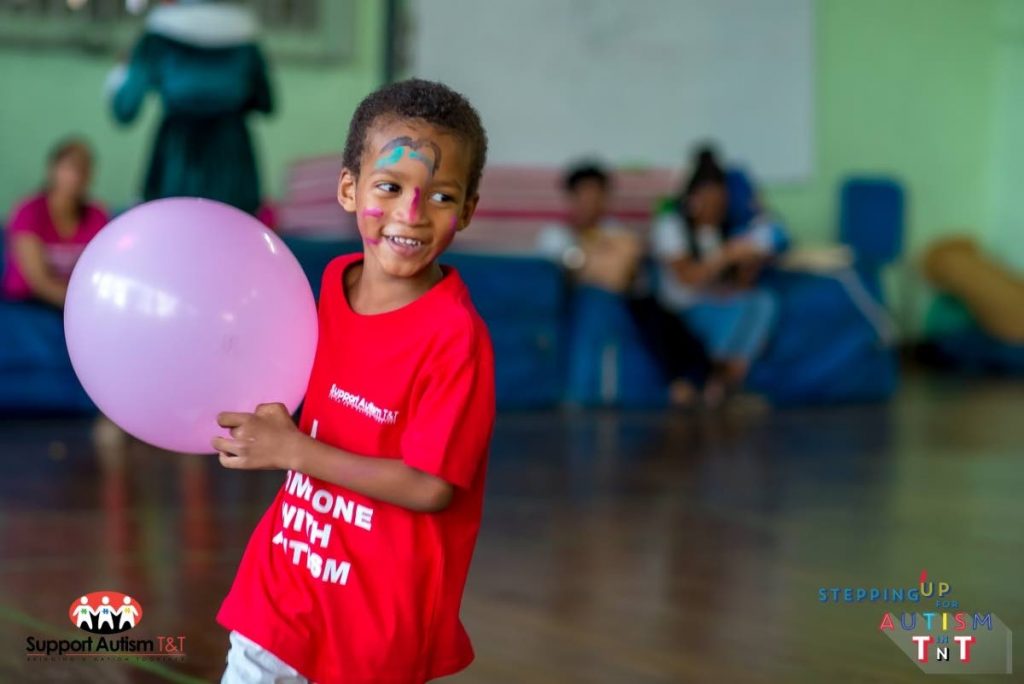Autism realities during covid19

DR RADICA MAHASE
ON May 6, 2020 the UN Secretary-General António Guterres stated that, “We must guarantee the equal rights of people with disabilities to access healthcare and lifesaving procedures during the pandemic.”
Here in TT, we had a series of protocols rolled out by the Ministry of Health accompanied by daily press updates. Individuals with special needs did not feature in these. The health sector acted as if though the special needs population was invisible in their entire policy-making and information dissemination processes.
On the other hand, other ministries acted as if this section of our population was irrelevant. The Ministry of Education laid out their framework for online teaching with an online learning platform that made no special concessions for individuals with autism or other learning abilities.
One parent noted, “My child has autism and is in form one in a government secondary school. She was doing very well. She has a teacher’s aide and the school is very concerned about her special needs and always assisted her. However, when schools closed things changed. The teachers didn’t send any work for her. The ministry’s online learning platform has worksheets for us to print for her to do but these don’t stimulate her as she’s a visual learner so she haven’t really done much school work since. Her teacher’s aide has been sending us activities to do with her but that’s all really.”
Even when it comes to relief measures, the specific needs of those with autism and other special needs were not really taken into consideration. A good example is the distribution of food hampers. Government funds were distributed to various non-governmental organisations and religious institutions to provide food hampers for the most vulnerable in our society. Firstly, many of the parents/caregivers were unable to access these. As one parent noted, “The church nearby was distributing hampers and I went but they said I wasn’t a member so I couldn’t get one.” Another parent noted, “On the day they were giving out hampers I couldn’t go because my son was having a rough day so I missed that. It’s really unfortunate because it would have helped so much. I am a single mother and not working right now. ”

Secondly, hampers are standardised with basic food items and while some individuals with autism may consume these, many don’t. This is because so many people with autism have sensory issues when it comes to food. Many are sensitive to flavour, colour, smell and texture of foods which often results in them only eating few different foods. Thus, while hampers are given with good intentions, many of the items are not for the individuals with autism.
One kind donor stated, “I really wanted to help a mom and her two children who live in my area. I know things have been difficult for her since she lost her job. I went to the supermarket and bought everything that I would buy for my children – juice, snacks, fruits and basic food items. When I took it for her, the little boy, who has autism, came running outside, excited. Then he looked through the bags and found nothing that he wanted. When I asked her, she explained that he only eats four different foods and I didn’t have any of those. I wanted to slap myself because it didn’t even cross my mind to find out what food the child eats. I just assumed he ate everything.
"That whole incident made me realise how little I know about children with autism. The mom reassured me that it was a big help to her because she could now use her usual grocery money to provide for her special child. I can assure you though, the next time I shop for that family, that little boy will get the things he eats because now I know better.”
Covid19 has exposed the vulnerabilities in special needs population in TT. It has also shown the extent to which the needs of this section of our population are almost completely overlooked. According to the UN, “Even under normal circumstances, persons with disabilities are less likely to access healthcare, education, employment and to participate in the community. They are more likely to live in poverty, experience higher rates of violence, neglect and abuse, and are among the most marginalised in any crisis-affected community. Covid19 has further compounded this situation, disproportionately impacting people with disabilities both directly and indirectly.”
Dr Radica Mahase is founder/director, Support Autism T&T


Comments
"Autism realities during covid19"